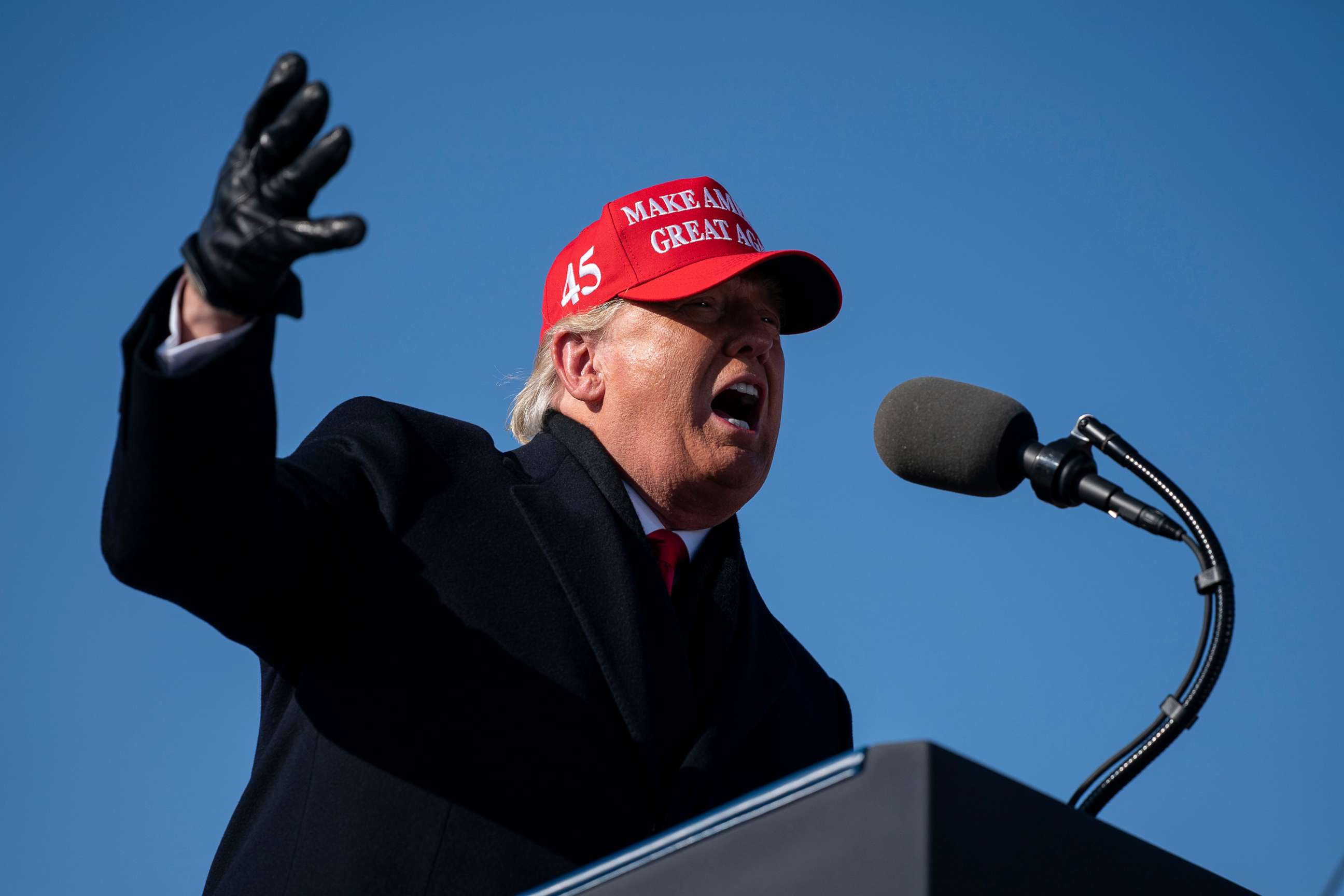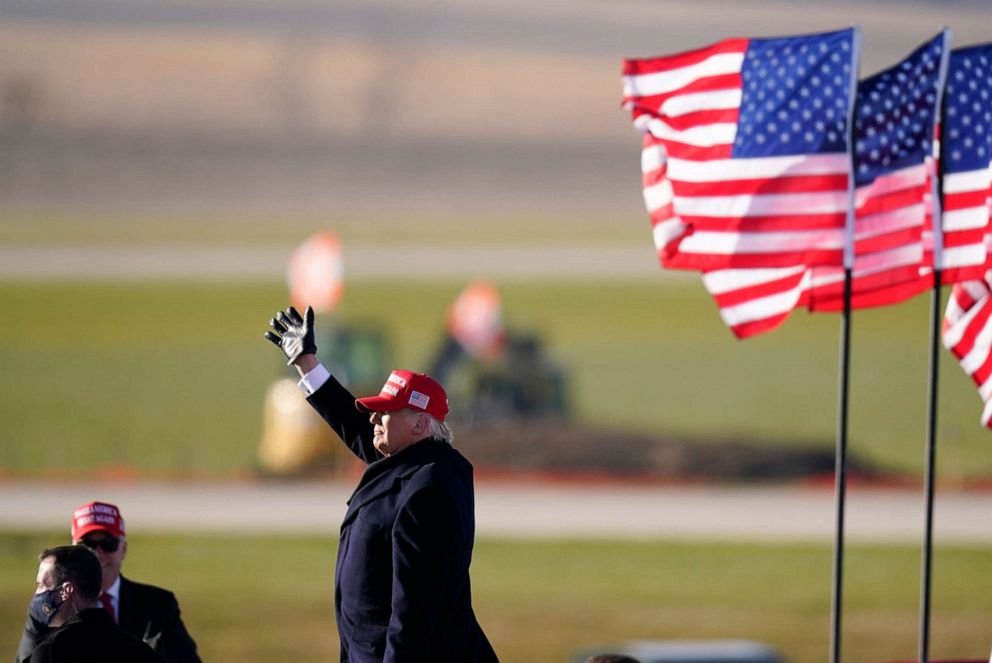Overview: Trump rallies in five states, Biden focus on Pennsylvania
With the clock ticking down until Election Day, Trump and Biden have only hours left to make their closing arguments to voters, and with more than 94 million already having cast their ballots, the pool of uncommitted voters they're hoping to win over is thinning out.
On the final full day of campaigning, the candidates return to the swing states they deem critical in their pathways to the White House the election -- but the trips come as the the contest is overshadowed by coronavirus cases rising across the country and in nearly every election battleground.
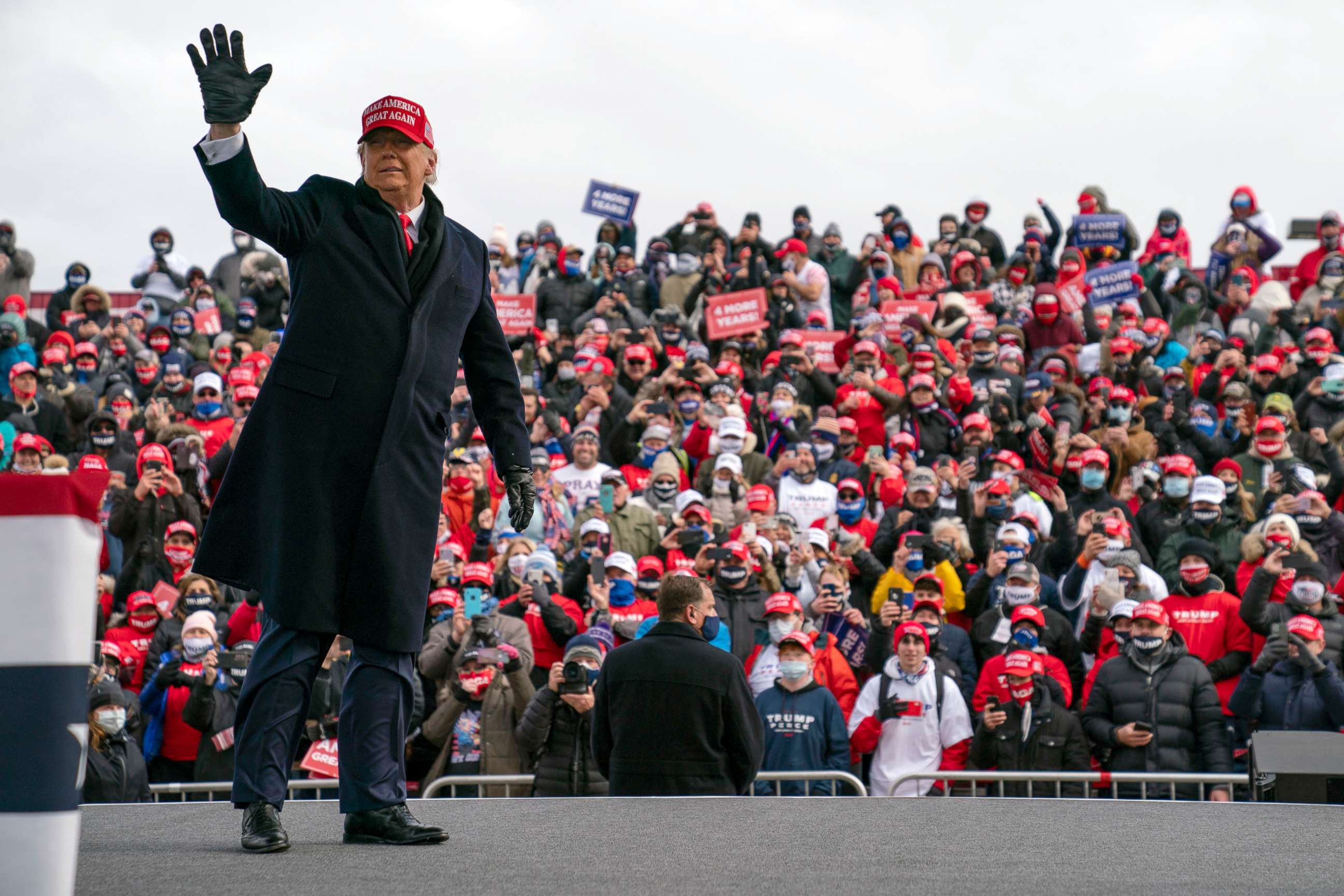
Trump and Biden are competing amid a pandemic and continue to paint contrasting realities of the COVID-19 landscape, with Trump insisting "COVID, COVID, COVID' -- as he puts it -- will disappear from media reports after the election, saying the country is "rounding the turn" while Biden acknowledges ending the pandemic won’t be like “flipping a switch” if he’s elected.
Continuing what Biden has deemed “superspreader” events, Trump has five rallies in four states Monday -- in Fayetteville, North Carolina at 11:30 a.m., in Avoca, Pennsylvania, at 2:30 p.m., in Traverse City, Michigan, at 5 p.m., and in Kenosha, Wisconsin, at 8 p.m., -- before traveling back to where he ended his campaign in 2016: Grand Rapids, Michigan, for a final rally.
Other than making a quick side trip to neighboring Cleveland, Ohio, Biden is focused on barnstorming what is shaping to be the pivotal battleground of the election -- Pennsylvania -- with events in Beaver County at 2:40 p.m. and in Pittsburgh at 5:40 p.m. with members of the African American community. He closes out the day at a drive in rally with Lady Gaga in Pittsburgh.
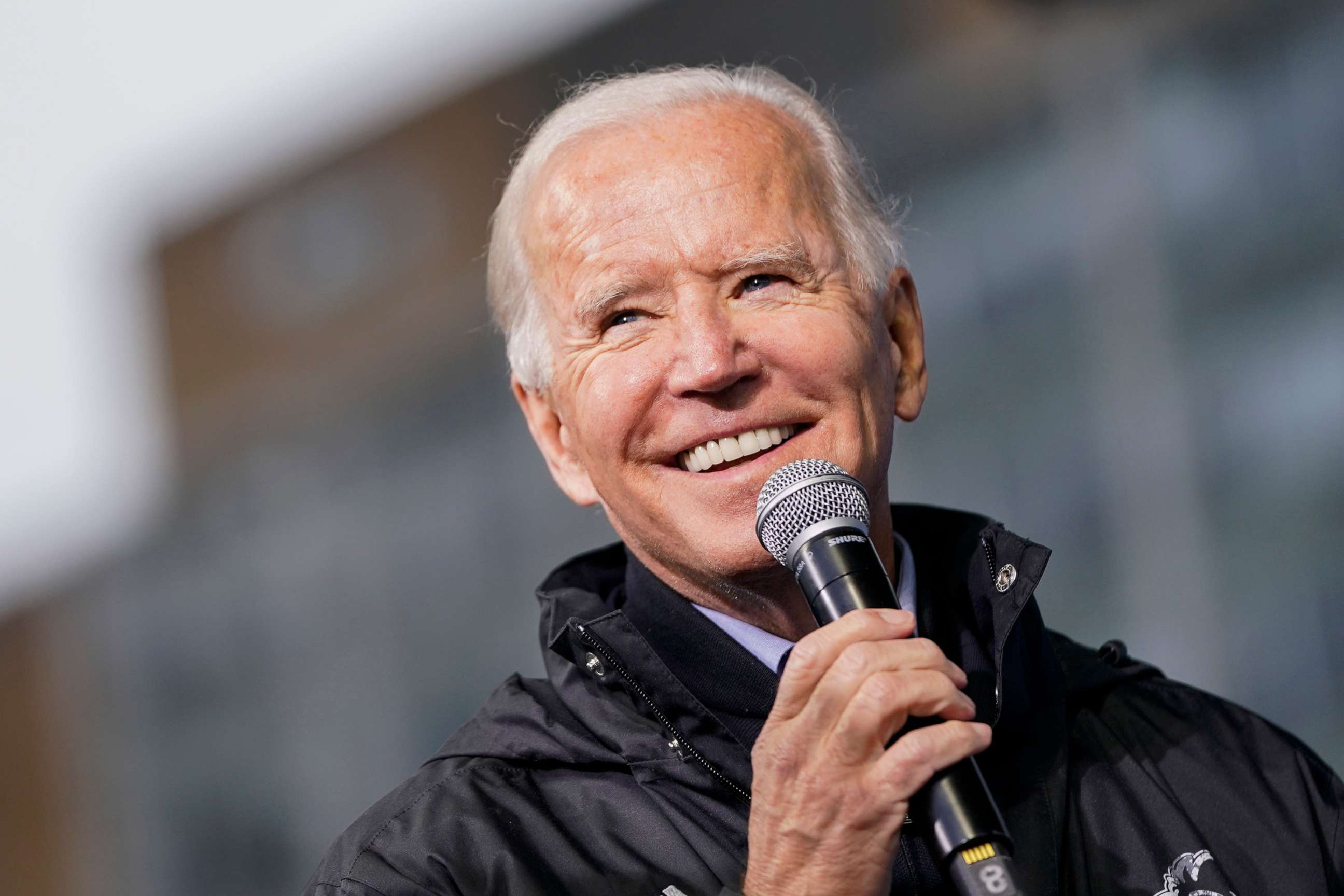
Biden’s running mate, California Sen. Kamala Harris, is also campaigning in Pennsylvania and finishes her day at a drive-in rally with John Legend in Philadelphia. Their ticket's top surrogate, former President Barack Obama, is spreading out their efforts with events in Georgia and Florida.
Vice President Mike Pence has a pair of rallies in Pennsylvania -- a state Trump won by one point in 2016 and one where a Democratic win this time would leave him with an exceedingly narrow path to victory -- before joining Trump on the trail in Michigan.
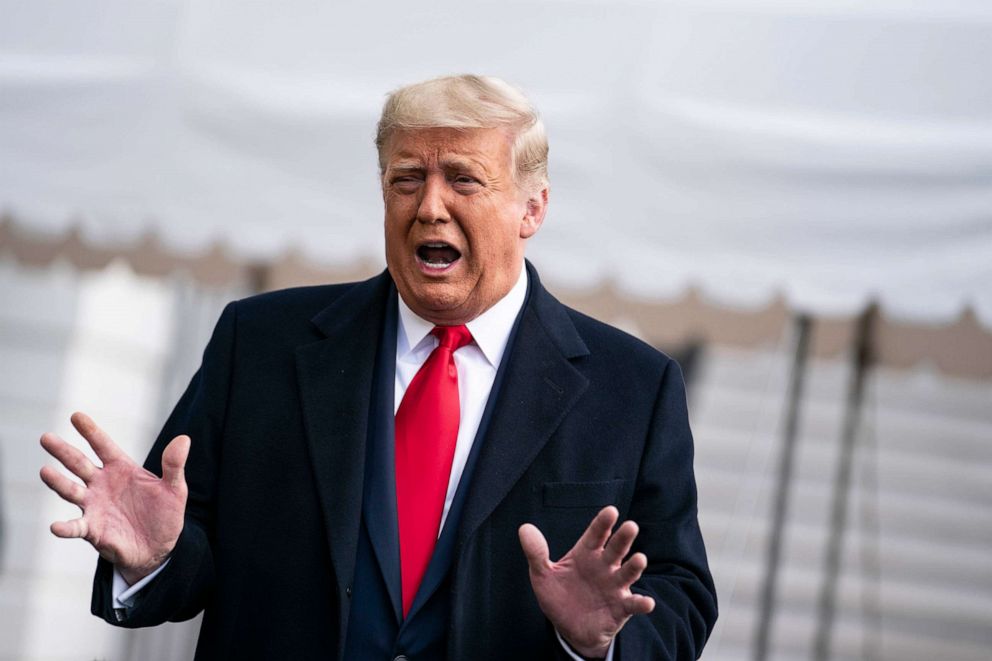
With a nation on edge, roiled by tension and palpable high anxiety on the eve of Election Day, the president seems more determined than ever to exploit divisions as his best hope of closing the gap in the polls.
Trump denied to reporters Sunday night that he would try to declare some of "victory" on election night but added, "as soon as the election is over, we’re going in with our lawyers." His comments on the heels of repeated attacks ON the Supreme Court for not allowing GOP efforts to block the counting of ballots arriving in the days after the election in key battleground states.
